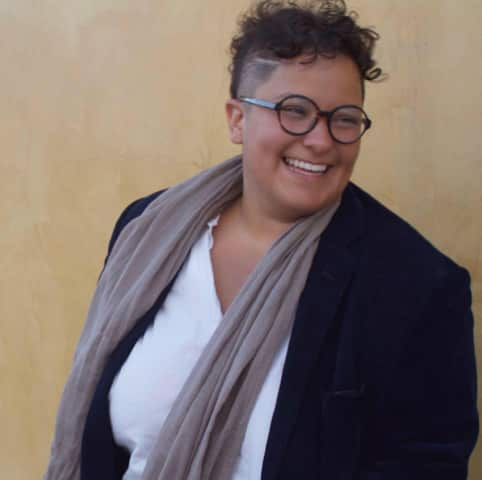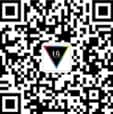One cold December evening, I sat at the bar of Roxie - the beating heart of Shanghai’s queer women community - waiting for my friend's date to arrive. Suddenly, a woman wearing a rainbow flag as a cape accidentally bumped into me. She was easily the most energetic person in the entire bar, which was mostly empty except for a few groups huddled in booths.
She said something in an affectionate tone to the bartender, and then proceeded to dance her heart out in the middle of an empty dancefloor. I watched, wishing I was nearly as drunk or enthusiastic as she was that night.
I would later learn that this woman was none other than Gabby Gabriel, the founder of Les Queers (LQ) Shanghai, Shanghai’s leading hub for LGBTQIA+ folk, particularly women and non-binary people. Founded in 2014, LQ has amassed an online and offline presence of over 3,000 members locally and 4,000 globally, with equal amounts of native Chinese and expats.
Gabriel, originally from Cleveland, Ohio, made the move to Shanghai in 2012 because it was the easiest place to move to be with her then long-distance girlfriend. She would soon learn Shanghai’s queer scene was barely visible.
“When I moved to Shanghai, I couldn’t find any lesbians.” Gabriel says. When she asked her straight Chinese friends where queer people were, “they were like: ’there are no gay people here.’ And I really started to believe them because I couldn’t find any.”
What started out as a bid to make more queer friends has grown into a thriving, supportive community of queer women and non-binary people across Shanghai. LQ is the host of many social events, including parties, dinners, and discussions about LGBTQIA+ issues, which Gabriel feels provide a space for queer women to exist together outside of dating.
“Right now most of the LGBTQIA+ apps that exist globally are, except for BLUED, focused on dating, which the LQ feels dilutes the value of what the LGBT community represents. We are much more than sex,” Gabriel told City Weekend.
When it comes to China and the West, one of the things I learned while living in Shanghai is that there are lots of misconceptions on both sides. Gabriel echoes this sentiment when it comes to the damning narratives spread about being queer in China.
“People think that being queer in China must be awful because of the misunderstanding the West has about what life is like in China in general,” Gabriel explains.
“The law doesn’t protect queer rights, and discrimination exists, friends have been fired for being queer or are afraid to come out to their parents. Sometimes queer people default to arranging a marriage with members of the opposite sex in order to appease their parents expectations.”
“However, with that being said, being queer here is not as bad as Western media makes it seems to be,“ Gabriel says.
“China is a very non-violent society, and although there is a definite lack of visibility, and there isn’t equal protection under law (a right that only has recently been earned in the West), it is a much safer country to be queer.”
She also cites cultural differences that make being queer in China that bit safer than being queer in the US.
“Affection between women here is more common, as even friends hold hands walking down the street. I feel safer here holding hands with my girlfriend than I would in the United States. No one will say anything to us in China, but in the US we might receive unwanted comments or in extreme cases, face violence.”
In addition to providing a space for queer women, LQ has also created Q Key, a series of markers that businesses earn when they achieve certain milestones such as being queer owned, receiving Diversity and Inclusion Training from LQ, or having LGBTQIA+ inclusion hiring practices. This system is designed so the LGBTQIA+ community can be better informed when deciding which businesses to patron or work for.

Gabriel and her team are gearing up for taking LQ’s mission beyond China, with the launch of the LesQueers mobile app this month.
“It is a community app, and hopes to help making finding other queer friends easier,” Gabriel says.
“After spending two lonely years without being able to find the LGBTQIA+ Community in Shanghai, I wanted to make an app that would help prevent this from happening ever again for someone else.”
Nicknamed the Lesbian Godfather, Gabriel has become something of a lightning rod for all things queer in Shanghai, a role she takes very seriously.
“My hope is that as a voice for the LGBTQIA+ community I can somehow contribute to the global understanding of what it means to be queer.”
“I’m very hopeful for the future acceptance of LGBTQIA+ people in China.”
You can check out more of LQ at www.lesqueers.com, or scan the QR code below to follow LQ on WeChat:

Love the story? Follow the author here: Twitter @mirroreyedgazer, Facebook @mirroeyedgazer, Instagram @kimkoelmeyerwrites. Photographs by Allan-Micheal Brown, Horns Creative and Sarah Cuiksa.


